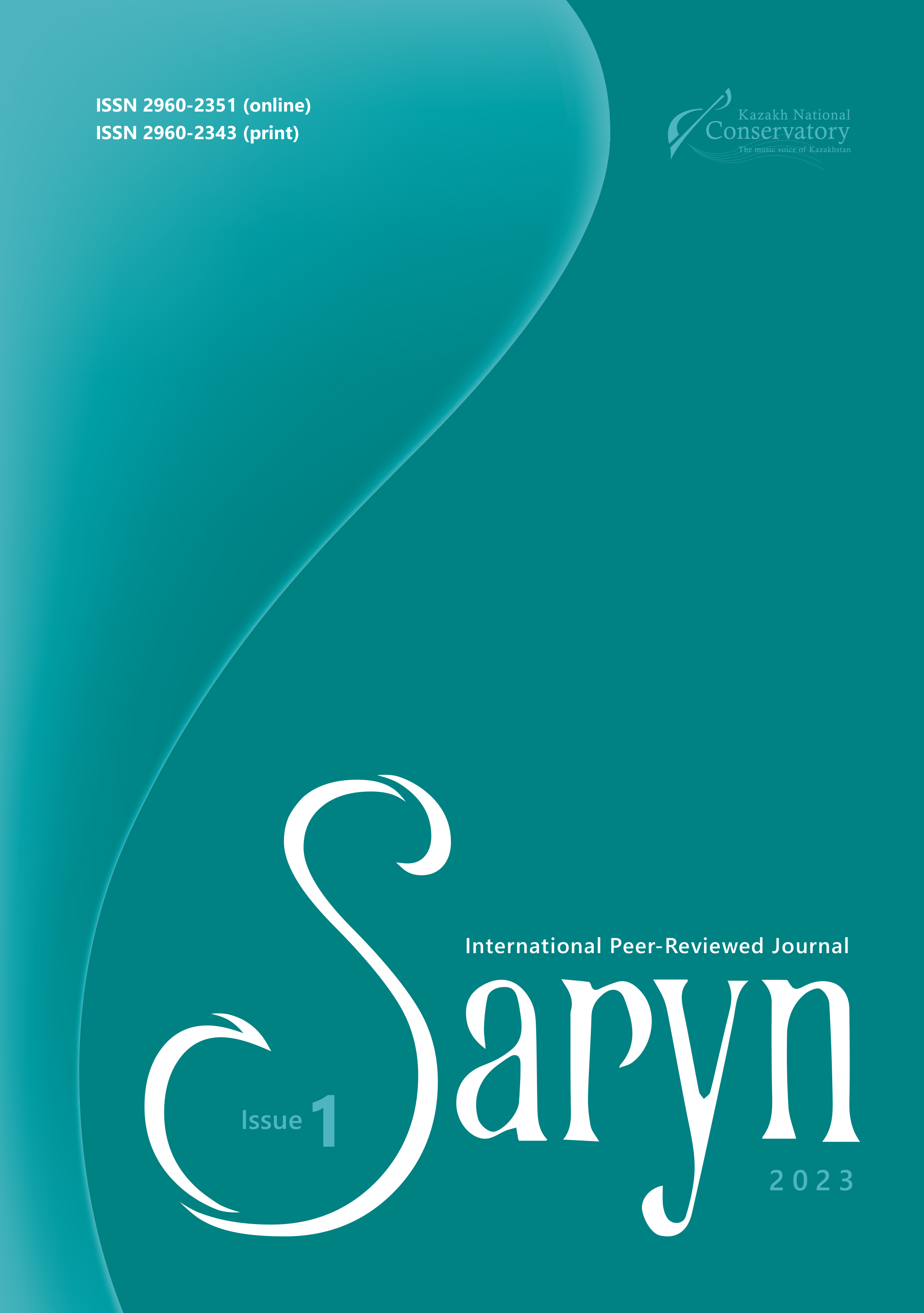Article information
Article publication date
2023-03-29
Article Page
60–72
Chapter
Arts & Humanities
License
Abstract
Myth has been and continues to be an enigma to science, and its interest has led to an endless number of theories, concepts, and new questions. One of them is the phenomenon of myth when it is infinite through its semantic interpretation of the world without giving up its symbolic character. If for a long time the concepts of “myth” and “logic” were conceptually opposed, the linguistic paradigm of cultural philosophy, born in the womb of postmetaphysics, has opened the possibility of fully thinking through the logic of myth. In Friedrich Nietzsche’s philosophy, myth is total – it is in language and style, among the means of logical constructions of his texts, etc., because for him the existence of the world itself is semiotic. The phenomenology of Edmund Husserl, Martin Heidegger, spoke about the myth in the key of finding and recreating their primary meanings as the reference concepts of ontology. The philosophy of symbolic forms by Ernst Cassirer, as well as the apology of the logic of myth by Alexey Losev, Yakov Golosovker are considered in terms of justification of the symbolic nature of myth as a manifestation of the symbolic language of sacral character.
The “mythology” term used in this work does not claim to be a concept, but its legitimacy is based on the teaching of Claude Levi-Strauss, “charged” ideas of existential philosophy, which contributed to the discovery of the phenomenon of «handiness" as manifestations of immediate sensitivity to the world as existence. The ideas about the sacred nature of the symbol, which are further developed in this article, served as a basis for the possibility of speaking about mythology as a method of encoding the sacred, which is particularly significant and peculiar in the symbol. It is assumed that the symbolic exists in the space of the sacred, whose loss transforms it into a sign.
1Keywords
myth
postmetaphysics
mythologique
mythological thought
semiotics
symbolism
References
Bachelard, G. Psikhoanaliz ognya [orig. Russian: The Psychoanalysis of Fire]. – Moscow: Progress, 1993. – 176 p.
Cardini, F. Istoki srednevekovogo rytsarstva [orig. Russian: The Origins of Medieval Knighthood]. – Sretensk: MTSIFI, 2000. – 352 p.
Cassirer, E. Fenomnologiya poznaniya // Filosofiya simvolicheskikh form [orig. Russian: The Philsosophy of Symbolic Forms]. – Moscow: Akademicheskiy Proekt, 2011. – 398 p.
Dmytro, Ch.; Kobcinska, O; Mosenkis, Iu. Mythological Intertext in Maeterlinck’s Pelléas and Mélisande // Litera: Journal of Language, Literature and Cultural Studies. – 2021. – No. 2 (31). – P. 605–618. – DOI: 10.26650/LITERA2021-87144.
Foucault, M. Drugie prostranstva [orig. Russian: Other Spaces] // Intellektualy i vlast: Izbrannye politicheskie stati, vystupleniya i intervyu [orig. Russian: Intelligience and Authority. Selected Articles, Speaking and Interview]. – Moscow: Praksis, 2006. – P. 191–204.
Gadamer, H. G. Aktualnost prekrasnogo [orig. Russian: The Relevance of Beauty]. – Moscow: Iskusstvo, 1991. – 371 p.
Golosovker, Ya. E. Logika mifa [orig. Russian: The Logic of Myth]. – Moscow: Main Editors Office of Oriental Literature of Nauka, 1987. – 218 p.
Heidegger, M. Bytie i vremya [orig. Russian: Being and Time]. – Kharkov: Folio, 2003. – 503 p.
Husserl, E. Krizis evropeyskogo chelovechestva i filosofiya [orig. Russian: The Crisis of European Humanity and Philosophy] // Kulturologiya. XX vek. Antologiya. – Moscow: Yurist, 1995. – P. 297–330.
Klempe, S. H. Mythical Thinking, Scientific Discourses and Research Dissemination // Integrative Psychological and Behavioral Science. – 2011. – No. 2 (45). – P. 216–22 – DOI: 10.1007/s12124-011-9160-0.
Lévi-Strauss, C. Mifologiki: Syroe i prigotovlennoe [orig. Russian: Mythologiques: The Raw and The Cooked]. – Moscow: Flyuid, 2006. – 399 p.
Lévi-Strauss, C. Pervobytnoe myshlenie [orig. Russian: Primary Thought] / tr. A. N. Ostrovsky. – Moscow: TERRA, 1999. – 392 p.
Losev, A. F. Iz rannikh proizvedeniy [orig. Russian: Early Works] // Dialektika mifa [orig. Russian: Dialectics of Myth]. – Moscow: Pravda, 1990. – 655 p.
Nietzsche, F. Rozhdenie tragedii. Iz naslediya 1869–1873 godov [orig. Russian: The Birth of Tragedy] // Full Collection of Works in 13 Volumes. – Moscow: Kulturnaya revolyutsiya, 2012. – P. 416.
Pyatigorskiy, A. Mifologicheskie razmyshleniya. Lektsii po fenomenologii mifa [orig. Russian: Mythological Thinking. Lectures on the Phenomenology of Myth]. – Moscow: Yazyki russkoy kultury, 1996. – 288 p.
Toporov, V. O rituale [orig. Russian: About the Ritual] // Arkhaicheskiy ritual v folklornykh i ranneliteraturnykh pamyatnikakh [orig. Russian: Archaic Ritual in Folklore and Early Literary Monuments]. – Moscow: Nauka, 1988. – P. 7–60.





